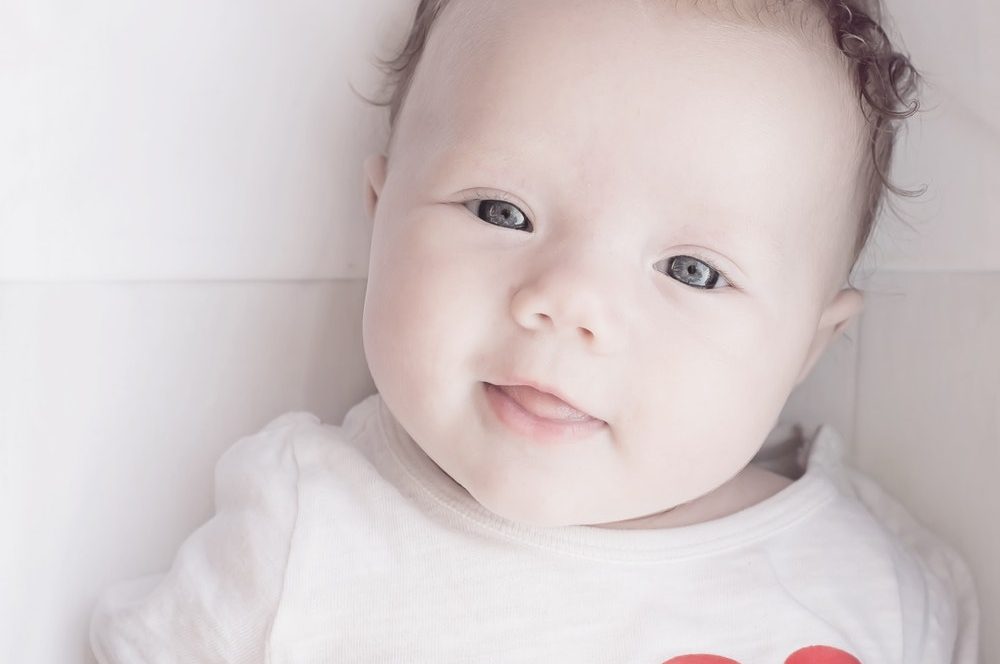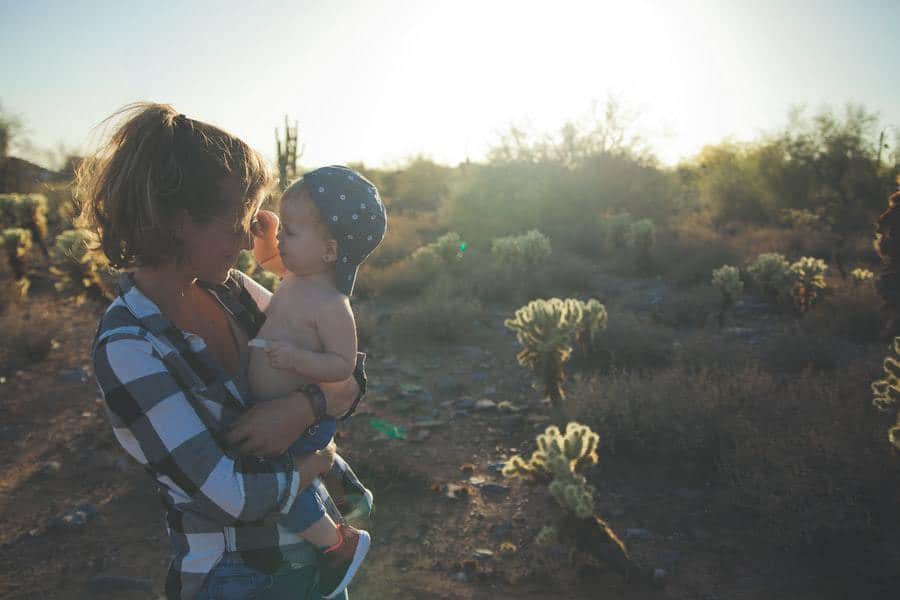The Urban Mommies staff love baby names! The possibilities are endless and so much fun to brain storm. So over the next little while we will be featuring themed baby name articles and lists of our staff’s favourite baby names. First we have our Content Editor Danica Longair’s list of favourite baby names. Feel free to borrow some of her ideas! When you’re done reading her favourites, don’t forget to check out our Baby Name section for more great ideas!
Many parents ask – what is the best way to start brushing my baby’s teeth? Well we have some answers for you!
Begin brushing your baby’s teeth as soon as their first tooth appears. Use a soft, baby toothbrush with just a tiny dab of fluoride toothpaste. Brush twice a day; brushing before bed is especially important. Don’t miss brushing where the teeth and gums meet! Lift your baby’s lip regularly to check for white or brown spots on their teeth. Look closely along the gum line. Call your dentist if you notice anything unusual. Take your baby to see a dentist once their first tooth comes in or by their first birthday.
About 2-1/2 million children are injured or killed by hazards in the home each year. The good news is that many of these incidents can be prevented by using simple child safety devices on the market today. Childproof your home and your life – it’s worth it.
Do you have any information or advice on keeping children safe this summer around the pool?
Even though babies can’t wear traditional sunglasses, they still require UV protection for their eyes, warns the B.C. Association of Optometrists. Cranbrook optometrist Dr. Bednarczyk says damage from ultra-violet light has a cumulative effect, so it’s better to start protecting children’s eyes while they are young. “Over time, UV radiation can damage the cornea, lens or retina of the eyes, and can be linked to a number of eye disorders including cataracts, macular degeneration and cancer,” says Dr. Bednarczyk.
>Bye bye perfume, no more chlorine. Flush them down and your life will be green.. Ok, so maybe not a great ditty, but we haven’t stopped singing since we tried these fabulous diapers. A mix between cloth and disposables, the inner liner pops out and you can flush it – or get this… stick it in your compost bin to decompose within 3 months and give soil directly back to the earth. (Add this to our fun list of things to do with kids in the garden). For those of you who are mortally offended, not only by the landfill factor of using disposable diapers, but by constantly seeing Elmos and princesses on your dear one’s tush, these are the solution.
I’m not a doctor. I’m not an expert in infant development or behaviour. In fact, before I had my own kids, I wasn’t even particularly drawn to little kids. But, I’m a mom who has had two of these ‘high needs’ babies (granted, my second was much more so). I had never heard the term until my second child was a few months old, but when I saw the description a light bulb went off. I wasn’t alone! My baby wasn’t psychologically underdeveloped, emotionally stunted, spoiled, or difficult, just ‘high needs’. Finally there was a way I could explain it to people, instead of just saying, “My baby is really, really fussy”.
But Aren’t All Babies ‘Needy’?
Perhaps the best way to describe what ‘high needs’ is, is to first explain what it is not. Well meaning people (parents, at that!) may say, “Oh, all babies are high needs to some extent. They are babies, after all”. Other people think, “Surely you must be exaggerating…your baby can’t cry and fuss all day”. Well, let me tell you – they most certainly can!
The term ‘high needs’ is simply a descriptive term given to any baby that requires a significant (above average) amount of holding, attention, movement or motion in order to prevent crying, screaming or fussing.
My High Needs Baby
I remember when our son was 4 weeks old and in the hospital with a respiratory virus. Surprisingly, he screamed and cried less in those 4 days than in the previous month (perhaps because of all the action and activity going on?). He actually laid still on the bed for a couple of minutes watching the TV. My husband took a picture of him lying there, because it was a significant moment – That was the longest he had gone without crying since he was born (except when he was sleeping, of course).
Like our little guy, a high needs baby is not likely to drift peacefully off to sleep while you sing a lullaby, or sit happily in the stroller watching the world go by. A high needs baby probably doesn’t entertain him or herself by playing quietly with toys, and likely doesn’t feed every 2.5-3 hours and then contentedly lay back and gaze up into her mother’s eyes. In fact, sometimes it may seem like your high needs baby is seldom content or happy. And if you do find some little trick that works, chances are it won’t work next time.
What Makes a Baby High Needs?
Babies may be high needs because they are in pain or discomfort. Perhaps there is a physical issue present, such as acid reflux, or an allergy or sensitivity to dairy or other foods. And of course, many newborns go through a colicky stage, where they cry or scream, usually in the evening (but not always), usually appear to be in pain, and where soothing efforts may appear to be useless. In some cases, a baby is high needs because of their temperament; the only sure way to tell if this is the case is if the fussiness doesn’t go away as your baby gets older.
I would consider babies experiencing any of these physical issues to be ‘high needs’. Some would disagree because there is a clear cause to the crying. Regardless, these babies all have a few things in common: They cry excessively, are difficult to soothe, may have trouble sleeping or eating, and are very draining on their parents.
Characteristics of a High Needs Baby
Following are some of the characteristics of high needs babies. All babies experience these issues from time to time. High needs babies, on the other hand, experience these a majority of the time, and probably experience many of them at the same time.
The term ‘high needs’, as coined by Dr. Sears, is a term used to describe infants who have difficulty in many key areas, particularly in feeding, sleeping and transitions in general. Some of the characteristics of a high needs baby include:
- Difficulty falling and/or staying asleep
- Difficulty entertaining themselves
- Excessive crying or fussing
- Loud, intense crying or screaming (often for no apparent reason)
- Difficulty feeding
- Unpredictability
- May be difficult or seemingly impossible to soothe
- Demanding (may cry urgently when needs aren’t met immediately)
- May need to be carried around constantly
- May require movement or motion (e.g. a swing, car ride, etc.) to prevent crying
- Reacts strongly to stimuli (both positive and negative)
- High-energy
- May require lots of activity/stimuli to remain entertained
- May need the calm and familiarity of home to remain somewhat content
The verdict is out on whether or not high needs babies remain high needs. Some extremely active, demanding babies become gentle and calm toddlers. Others remain very busy, active, and persistent.
How Do I Cope with My High Needs Baby?
In my experience, half the battle is adjusting your thinking and accepting your baby as he or she is. Realize that some babies just have a different temperament, and just need more attention right now. Try to put aside the expectations and hopes you had for your baby when you were pregnant. Embrace the fact that your baby is who he is, but this isn’t how he will always be.
When your baby is screaming, strap her into the stroller, get yourself a coffee and go for a long walk. Don’t worry about your house looking perfect. In a few months, you’ll have more time for that. Arrange to have a babysitter a couple of times a week…don’t worry about your baby’s crying bothering the sitter. This is one day in her life, this is your every day. Order in dinner; the gourmet meals can wait a while.
But most of all, be gentle with yourself. The expectations you may have had for what kind of mother you would be probably didn’t take into account having a high-needs baby. Don’t expect that you’ll always have warm, fuzzy feelings towards your little one. Enjoy the quiet, happy times you do have together right now. Find ways to get through it. I promise, it will get easier.
Holly Klaassen is a mother of two and runs an excellent resource site for parents of fussy babies.
Many overtired parents wonder the same thing – when should my baby be sleeping through the night?
Unfortunately there is no easy answer to this question. It really depends which definition of sleeping through the night you are trying to achieve as sleeping through the night means different things to different people. A baby can sleep longer stretches of sleep based on their age and weight.
Q – My baby is 10 months old and I am still up every 3 hours all night. I think I need to get some sleep in order to function properly during the day. How can I get my baby to sleep?
A – The way that your baby falls asleep is probably the way that your baby has to return to sleep during their night wakings. So you would want to start making changes at bedtime and then again do the same thing at all night wakings. You will have to teach your baby to fall asleep without props so that they can learn to return to sleep when they next wake up. The type of method that you could use would depend on a couple of factors but the underlying key in any method is for them to go into their crib aware – sleepy but awake.






